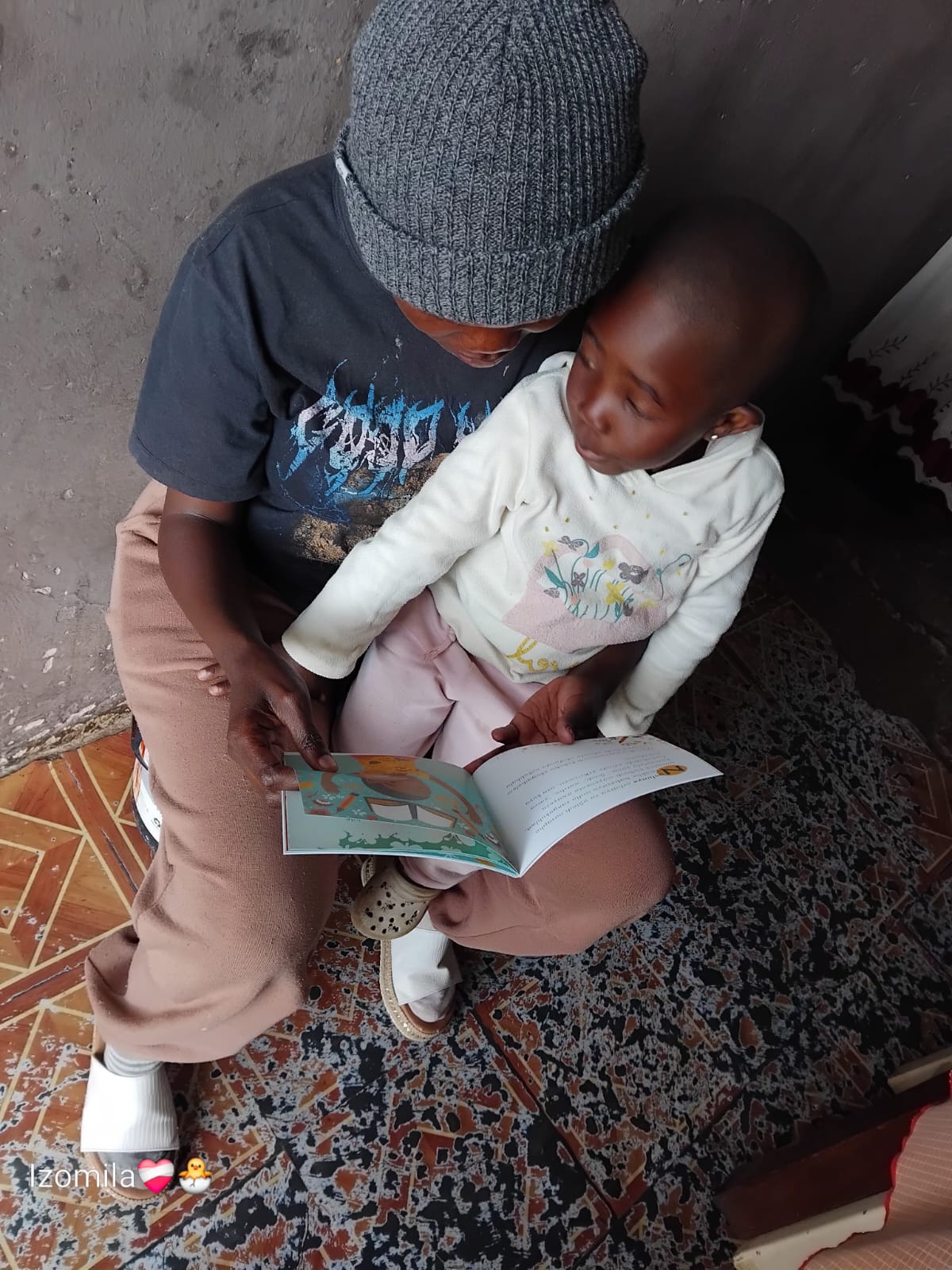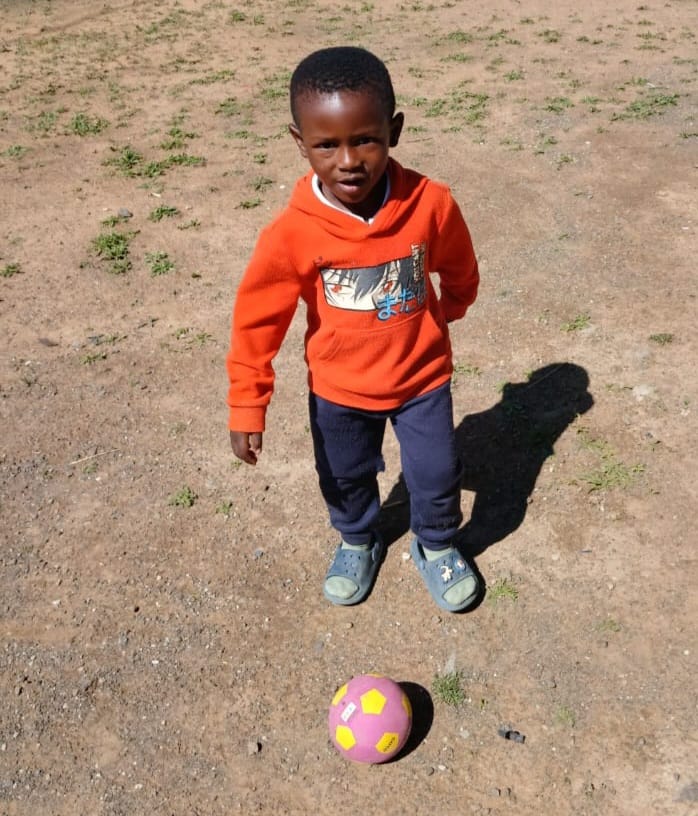Reaching families where they are: A playful and powerful “Home Visiting Model” in Randfontein
12 Aug 2025
Co-authored by ACFS and DO MORE FOUNDATION
In many of South Africa’s under-resourced communities, the earliest years of a child’s life are often the most overlooked. Thousands of children remain at home instead of attending early learning centres – sometimes due to affordability, sometimes due to cultural perceptions, and often due to sheer lack of access. But while the child waits, so does their development. And the consequences of this “wait for Grade R” mentality are severe – missed opportunities for early stimulation, school readiness, and lifelong wellbeing.
This is the urgent gap that ACFS and the DO MORE FOUNDATION (with the financial backing from Investec) are addressing through a dynamic home visiting programme in Randfontein, supported by RCL FOODS and brought to life through an impactful partnership with Kids Collab.
“We started this model as a direct response to the reality we were seeing – children sitting at home, without stimulation, without access to nutrition, and falling behind before they’ve even started,” explains Bertha Magoge, Executive Director at ACFS.
How it works: Supporting caregivers to be their ‘child’s first teacher’
At the heart of the model is a simple but transformative belief: parents and caregivers are not just minders – they are a child’s first teacher. But they often lack the tools, the confidence, or even the understanding of how much their everyday interaction shapes their child’s brain development.
Each trained home visitor from ACFS works with 5 to 10 families a month, equipped with the “Parent PlayBox” (age-specific, play-based resources developed by Kids Collab in partnership with Learn to Play). The kit is designed to support Social and Emotional Learning, Sensory Development, Fine and Gross Motor Development, Pre-Literacy and Communication, Cognitive Thinking, and Creativity and Imagination using everyday materials.
In the first visit, the facilitator shows the caregiver how to use each part of the kit to engage their child through play. Over the course of the month, they return 3 to 4 times for one-on-one coaching, helping to reinforce learning, answer questions, and model play techniques. At the end of the month, caregivers reunite at the local ACFS toy library to reflect as a group, share challenges, and celebrate wins. These cohort sessions spark a deep sense of peer support and emotional solidarity.
“It’s not just about play. It’s about restoring dignity,” says Bertha. “Poverty can be isolating. These gatherings tell parents: you are not alone.”

Real Stories, Real Impact
One of the most moving stories to come from the programme is that of a young mother in Zenzele. Living in a shack with her two children under six, her world was shattered when her abusive boyfriend set their home on fire while they were inside.
“By a miracle, she escaped with her life and her children. All she had left were the clothes on their backs,” Bertha recalls. “But what happened next showed the power of community. The other moms in the cohort came together – each giving what little they could – to help her rebuild. They reminded her she was not alone. That’s what this programme does.”
These kits, conversations, and connections go far beyond early learning – they’re opening space for trauma healing, parenting support, and even child protection. Facilitators have referred caregivers to ACFS’ wider support networks, including SAPS and government services, when deeper issues are identified during visits.
Why it matters
The monthly cost to send your child to an ECD centre in the Randfontein communities in which we operate ranges from R200 to R550, well beyond the reach of many families, especially those surviving on a single child support grant. Home visiting offers a free, human centred solution to bring early learning into the home, especially during the most critical years of a child’s development.
But the success of this model lies not just in the materials, but in the methodology: consistent, trained facilitators; high quality resources developed with input from early childhood experts (Kids Collab); and a strong foundation of trust within the community.
“Our collaboration with ACFS to implement the Parent PlayBox in Randfontein has been nothing short of inspiring,” says Rachel Machoon, Director at Kids Collab. “Visiting the community after six months and seeing parents actively engaging in activities with their children was incredibly special. What stood out most was the involvement of fathers. One dad shared that his five-year-old, who previously preferred the streets to spending time with him, now chooses to rather play together, saying, ‘Dad is finally fun.’ He added that the Parent PlayBox has helped him keep his child off the street and build a stronger bond through play.”
“The ripple effect has been remarkable,” Rachel continues. “Children from neighbouring homes without access to a PlayBox are joining in, turning these sessions into community-building moments. The commitment from ACFS facilitators, through home visits and monthly meetups, has created a deep sense of trust and support. Parents feel seen, valued, and eager to continue. We often hear that parents ask to extend sessions because they’re enjoying them so much and learning practical ways to bond through play.”
“One of the Parent PlayBox activities invites caregivers and children to plant seeds together, a simple but powerful way to explore nurturing, responsibility, and the joy of watching something grow over time. Children learn about patience and care as they water their seeds, observe changes, and talk about what plants need to thrive, all while building meaningful moments of connection with their caregivers.”
“One mother was so inspired by this activity that she went beyond the home. She created a small garden patch, using kitchen forks as makeshift tools to help the children around her plant their seeds. What began as a playful learning moment grew into a shared community project - a space where children and parents could come together, dig, plant, and connect. It’s a beautiful example of how the PlayBox is planting more than just seeds; it's growing joy, connection, and a shared sense of purpose, both at home and in the heart of the community.”

Challenges along the way
Like any community rooted programme, this one isn’t without its hurdles. Ensuring consistent attendance, dealing with trauma and mental health challenges, and finding time in caregivers’ busy lives are ongoing issues. Yet, the incredible jump in attendance – from just five or six parents to a full 30 – shows a growing belief in the programme’s value.
“We’ve seen caregivers who had no idea how to play with their children transform into confident, joyful co-learners,” says Bertha. “They’re now advocates in their communities.”
Another challenge is scale. Home visiting is more expensive per beneficiary than centre based models, making it a harder sell to many funders. But that’s exactly why we believe it must be prioritised.
A call to funders: Let’s get behind the frontlines
This is not just a pilot. It’s not a one off. It’s a replicable, adaptable, and high impact model that delivers nutrition, psychosocial support, and early learning in one powerful package.
We need more investment in caregiver focused interventions – particularly home visiting models that meet families where they are. These are the quiet revolutions that change the trajectory of a child’s life. And they deserve centre stage in any conversation about early childhood development in South Africa.
“If we truly want to ‘leave no child behind’, then we must stop leaving their caregivers behind,” concludes Bertha.
This article was co-authored by the DO MORE FOUNDATION and the ACFS Community Education & Feeding Scheme, offering key learnings from the Randfontein Deep Dive Project. This important work is made possible through the generous support of RCL FOODS, the dedicated implementation partner Kids Collab, and—most importantly—the parents who volunteered their time and insights to participate in the programme.